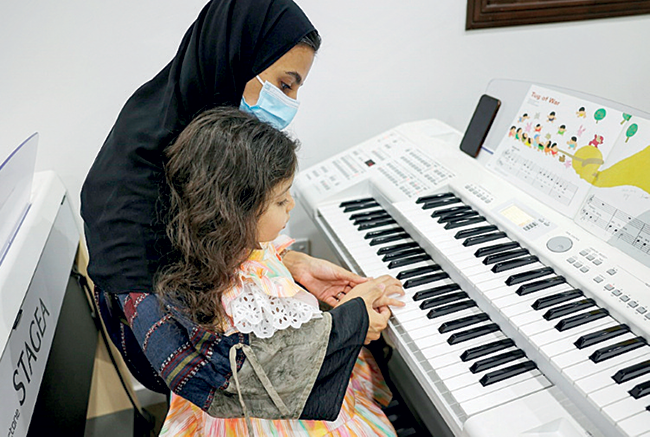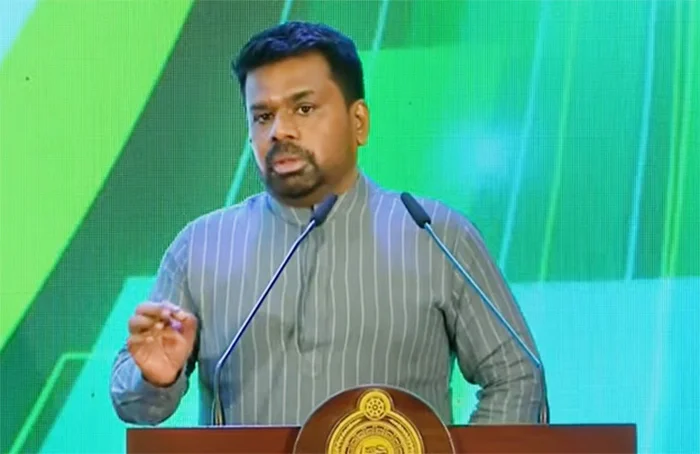News
Students embrace new rhythms at Saudi music schools

Saudi businessman Ahmed Abdullah watches intently as his seven-year-old daughter Yasmine practises keyboard scales at a Riyadh music school, an opportunity he could only dream about when he was young. Saudi Arabia’s rulers have relaxed some social restrictions after decades of adhering to a rigid interpretation of Islam, enforced by the kingdom’s religious police, that placed severe limits on social activities including group music lessons.
“Now we are thinking about the next generation and investing in it,” Abdullah said.
Previously those who could afford it hired music tutors to come to their homes, while the rest struggled to find any instruction at all. But as Crown Prince Mohammed bin Salman, the country’s de facto ruler, seeks to expand entertainment options for citizens, music has become a bigger part of daily life, and music schools are popping up in major cities.
At least five such schools have opened over the past few years in the capital Riyadh and Jeddah, the kingdom’s second city on the Red Sea coast, serving an enthusiastic clientele of children and some adults.
Yasmine’s class, at the Yamaha Music Centre, meets every Saturday for half an hour, with their Egyptian instructor running students through keyboard drills under a sign reading “Music for All”.
The session is bittersweet for her father, Abdullah, who thrills at his daughter’s enthusiasm even as it reminds him of “things I had no chance of achieving in my childhood”.
– Notes of change –
Music has been a feature of the dramatic social reforms ushered in by Prince Mohammed, who became first in line to the throne five years ago.
For decades the country was decidedly off the beaten path of most touring artists but in recent years some of the world’s biggest stars, including Justin Bieber and K-pop juggernaut BTS, have performed in the kingdom.
These marquee events have spurred allegations of complicity in a transparent bid to whitewash the kingdom’s grim human rights record.
But there is little question that many young, entertainment-starved Saudis are grateful for the shows.
Last December more than 700,000 revellers flocked to the MDLBeast Soundstorm music festival in Riyadh, officials said, for four days of performances including a set by superstar French DJ David Guetta.
Daily life, too, has become more melodious, with restaurants and cafes staging live acts or blasting recordings through speakers — some even during prayer time, when in the past they would have been forced to close. Several Saudis who are now trying to develop their own musical chops described the transformation as a boon to their mental health.
Wejdan Hajji, a 28-year-old employee at a firm selling medical supplies, said she once struggled to teach herself guitar by watching YouTube videos, lamenting that “if I made a mistake, there was no one to correct me”.
Now she pays 940 Saudi riyals (around $250) each month for classes with a Ukrainian teacher at the Yamaha Music Centre.
“I didn’t know anything, but now I’ve learned the basics,” she said.
“The one-hour session clears my mind… My personality has changed, and I’m calmer.”
– A growing market –
Such benefits could soon extend to many more young Saudis. In 2020 the kingdom established a “Music Authority” under its culture ministry which grants licenses to music schools and provides backing to young talents eager to pursue careers in the music industry. Some 100 private schools nationwide have included a music component in their curricula during the current academic year, according to an official tally.
In May, the authority launched a “Music Culture Programme” to develop the skills of public school students as well. As those initiatives get off the ground, the specialised music schools continue to do brisk business. One recent afternoon at the “House of Music” school in northern Riyadh, an instructor supervised five toddlers as they swayed to the sound of lullabies playing on a speaker.
The school opened in 2019 and has 300 students of all ages who come for lessons in rooms adorned with posters of performers like Bob Marley and Lebanese singer Fairuz.
“There is a good acceptance of the services we provide so far,” said the school’s Venezuelan director, Cesar Mora, adding that the school has a second branch in the works.
“There is a growing music-loving community and market.”
Walid Mahmoud, a 37-year-old Sudanese resident of Riyadh, began coming to the school so his young daughters could take lessons on the oud, a stringed instrument popular in the region.
News
Govt. bows to pressure, shelves Grade 6 reforms

The government, under heavy Opposition fire over inclusion of a sex website in the Grade 6 English module, as well as overall education reforms, has decided to put on hold reforms in respect of Grade 6.
Cabinet Spokesman and Media and Health Minister Dr. Nalinda Jayatissa announced the government decision yesterday (13) at the post-Cabinet media briefing at the Information Department.
According to him, the decision had been taken at the previous day’s Cabinet meeting, chaired by President Anura Kumara Dissanayake. Dr. Jayatissa said that education reforms pertaining to Garde 6 had been put on hold until 2027.
The Minister said that other proposed education reforms would be implemented as planned. The Minister said that action would be taken against those responsible for the inclusion of a link to a sex website following investigations conducted by the Criminal Investigation Department and the National Education Institute.
The SJB and several other political parties, as well as civil society groups, have accused the government of promoting an LGBTQ agenda, through the proposed education reforms.
The Opposition grouping Mahajana Handa, on Monday, made representations to the Mahanayake Thera of the Malwatta Chapter regarding the controversial reforms, while urging their intervention to halt the project.
News
AKD: Govt. agenda on track despite Ditwah disaster

President Anura Kumara Dissanayake yesterday (13) vowed to go ahead with his government’s agenda, regardless of the destruction caused by Cyclone Ditwah.
Emphasising the responsibility on the part of all to contribute to the post-Ditwah recovery efforts, President Dissanayake said that he would have complete faith in the public service.
The President said so at the launch of the re-building Sri Lanka project at the BMICH yesterday.
The JVP and NPP leader said that he wouldn’t take advantage of the death and destruction caused by the cyclone or use the situation as an excuse to reverse their agenda or weaken it.
President Dissanayake said that in spite of many calling for amending the then Budget, in view of the cyclone, the government presented the proposals that were agreed before the disaster struck.
News
SL to receive 10 helicopters from US

The United States has announced that it will provide the Sri Lanka Air Force with 10 US Navy TH-57 helicopters free of charge.
The announcement was made by outgoing US Ambassador Julie Chung, who stated, on social media, that the helicopters would be transferred under the United States’ Excess Defence Articles programme. The aircraft are Bell 206 Sea Ranger helicopters previously operated by the US Navy.
US sources said that the transfer was intended to strengthen Sri Lanka’s disaster response capabilities, following the devastating cyclone that struck the island at the end of 2025 and killed more than 600 people. US officials have framed the move as a humanitarian measure aimed at improving aerial rescue and relief operations.
-

 Business3 days ago
Business3 days agoDialog and UnionPay International Join Forces to Elevate Sri Lanka’s Digital Payment Landscape
-

 News3 days ago
News3 days agoSajith: Ashoka Chakra replaces Dharmachakra in Buddhism textbook
-

 Features3 days ago
Features3 days agoThe Paradox of Trump Power: Contested Authoritarian at Home, Uncontested Bully Abroad
-

 Features3 days ago
Features3 days agoSubject:Whatever happened to (my) three million dollars?
-

 News3 days ago
News3 days agoLevel I landslide early warnings issued to the Districts of Badulla, Kandy, Matale and Nuwara-Eliya extended
-

 News3 days ago
News3 days agoNational Communication Programme for Child Health Promotion (SBCC) has been launched. – PM
-

 News3 days ago
News3 days ago65 withdrawn cases re-filed by Govt, PM tells Parliament
-

 Opinion5 days ago
Opinion5 days agoThe minstrel monk and Rafiki, the old mandrill in The Lion King – II













